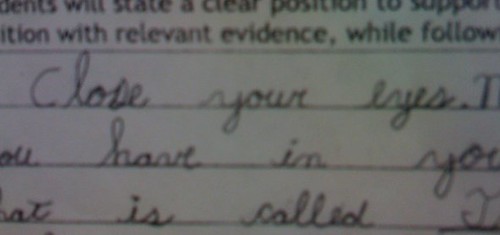
On Saturday, getting lost in the insane crowds at the Los Angeles Times Festival of Books, I attended two panels of fiction writers. The contrast between the two was unsettlingly clear.
In the morning, five female authors discussed their latest YA (Young Adult) novels and the differences between YA and non-YA work:
Growing Up: Young Adult Fiction
Moderator Ms. Cecil Castellucci
Ms. Robin Benway
Ms. Deb Caletti
Ms. Lauren Myracle
Ms. Lisa Yee
The panel was fun and admittedly “girly.” The authors get paid to represent the day-to-day inner turmoil of coming of age teen girls. The panel talked about how much fun writing YA can be. Mark and I used Cecil Casetllucci’s novel The Plain Janes for our graffiti unit and the students generally really liked it. I think YA lit gets a bad rap; it’s not considered “real” literature but is also the common dominator of what our students are expected to read for leisure. Likewise, looking at the popularity (with adults) of the Twilight series and Harry Potter, I think the no-rules-apply approach of YA has a broad appeal. Frankly, YA is fun to read and feels much more open than those stuffy adult novels most of us hold in front of us at airports and cafes.
Later, in the afternoon, I went to the following session (notice how the Festival offers absolutely no useful descriptions of these sessions?):
Writing from Different Angles
Moderator Mr. Michael Silverblatt
Mr. Bernard Cooper
Ms. Katherine Dunn
Mr. Geoff Dyer
Mr. Pico Iyer
Aside from the fact that two of my all-time favorite literary works were written by panelists on this stage, I can say that this panel was downright incredible. These superstars in the literary world (or, as Silverblatt joked an awesome fictitious law firm: Dyer, Iyer, Cooper, and Dunn) discussed the blurred distinction between fiction and non-fiction. The discussion went everywhere and my efforts to capture it will not do justice to the intellect displayed.
At the end of the day, I was struck by the way these two panels both catered to passionate readers and yet spoke in languages that couldn’t have been more different. The YA panel was fun. The women speaking were happy to discuss their craft and enjoyed the pleasantry of the YA genre. On the other hand, the masters of literature in the afternoon discussed the serious, intellectual work that is required of literature; this was difficult, important stuff. The gender distinction is striking too (talking with Rhea after the panel, it felt like, though Katherine Dunn is a huge force in contemporary literature, her classic text feels so embraced because it does not feel feminine at all).
And while we spent an hour listening to the distinctions between fiction and non-fiction, I was left thinking about the false distinction between real literature and “the other stuff.” I think there is a lot of merit in the best that YA has to offer. I realize that many high school English departments would challenge me if I merely taught the works of the YA panelists; that the works of Silverblatt’s confidants would be acceptable reading as a literary experience. The limitations found in this distinction seem to hurt the field of literature at large. In the same way that youth culture in the classroom can occasionally be a source of contention, deciding what is “good” literature versus what is one’s “guilty pleasure” is a dangerous path for both readers and writers. What would YA look like if it presented itself more seriously? Likewise, what would happen if literary literature (my new label) lightened up a bit? How would these shifts trickle into our classrooms?